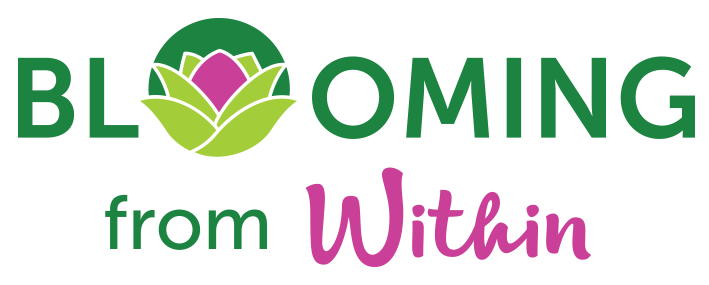Releasing pent-up emotions are a gift
Every time we’re challenged by life, we experience reactive feelings in the present time. Yet what we don’t realise is that we activate old mental thought and behavioural patterns from incidents long ago more often unresolved than not. And it’s this unfinished business which fuels your hate fire today.
These are our emotional wounds.
We all have them, and I’ll repeat that because it’s significant. We all have stuff. We’ve all had a childhood, and experiences, and breathed through this journey called life.
Sometimes we refer to these emotional wounds as ‘that old monkey on our back’. Emotional wounds are the source of negative energy which drive the uncontrollable defensive impulsive actions.
In a session with my psychologist, we spoke about the injustices of this world. She reminded me that there is no real justice in this world, just our acceptance of what has happened to us and our ability to heal. My psychologist reminded me of this quote:
“Holding on to anger is like grasping a hot coal with the intent of throwing it at someone else; you’re the one who gets burned.”
We spoke of how anger is a second-hand emotion (or substitute emotion) which we use subconsciously to avoid a primary emotion such as fear, vulnerability, or pain. Why carry that pain and negativity in our bodies when we’re the ones who suffer by hanging on?
The more we spoke and unpacked those feelings of anger, the calmer I began to feel and I began to relax. It was then I was able to reflect and dig deep, connecting to the reference of injustice.
We don’t like to be told what we cant do. We don’t like the thought of being confined in our homes. Ultimately, we don’t like the thought of our space being invaded. We hate the thought of our civil liberties being denied or violated.
Let’s talk about some tools to work through these feelings:
Tip #1 — Own your anger
Honour all the feels you’re experiencing, because you can’t process anything until you acknowledge it is there. Ignoring that emotional stuff only means that you’re stuffing it deeper within.
Purge into the journal. Tell your story in your words and your way. Ramble to your heart’s content. Word vomit out onto the page, and have the tissues handy.
Tip #2 — Recognise the source of your anger
Acknowledging the source of your anger is a healthy connection and great start to ridding out all the negative feels. Bringing your stuff into your conscious awareness supports you in identifying and understanding the impact in your heart space.
Tip #3 — Practice relaxation techniques
I find that meditation is a beautiful relaxation technique. Regular practice of meditation enables me to connect to my heart space and leave the monkey chatter of the mind behind.
Manage your stress through mindful breathing, meditation, yoga, or taking a bath. The more you can relax, the more your logic brain will work to enable you to strategies and identify solutions to solve the problem.
Tip #4 — Talk to a professional
Talking therapy is very powerful when you feel safe to do so. Chatting with someone you connect with is paramount. I strongly recommend they are trained to support you to safely release trauma and take back your power.
Tip #5 — Take a time-out
Having a self-imposed time-out is sometimes safer than speaking up or speaking out to the person who has triggered you. Taking a timeout will prevent you from saying something out of anger that you might later regret.
Tip #6 — Deal with one issue at a time
Don’t try and problem solve everything at once, as it rapidly becomes completely consuming and overwhelming. Once traumatised, you expend a lot of energy just trying to remain out of flight-fight, let alone dealing with the extra things that life has us juggling right now.
So push the pause button and place your focus on one thing at a time. Usually, this would include the pressing priority and nothing else. You’re already stressed out, so why include additional burdens upon yourself?
Tip #7 — Daily exercise
Get outside and walk. You’ll gain the benefit of vitamin D from sunlight and also generate your own feel-good hormones through invigorated movement, which helps fire your logical mental thought processes. Look for positive rather than focusing on anything negative.
Tip #8 — Nurture yourself
There is no one else on the planet that you will have a longer relationship with than the person who you look in the mirror each day, so it stands to reason that you should be looking after yourself.
Yet we don’t, and we conjure up all manner of excuses to avoid looking or doing anything for self.
There is no end to how you can pamper and nurture yourself. I always suggest starting small so that you can connect with how you feel when you do make the effort. For example, do you get in the shower and go through the motions of washing, or do you value that you have legs to stand up, fingers to massage your skin and experience touch? Could you loofah your skin so it’s glowing later on? Do you moisture your skin after showering? Do you wear underwear that makes you feel awesome regardless of what you have over the top? Do you wear comfortable shoes so that you can walk anywhere all day long?
Tip #9 — Express yourself via a journal
The joy of a journal is that it immediately enables you to express.
Writing about your experiences and the feels in your journal is a lovely way to empower yourself through expression. Exploring awareness of your triggers — people, environment, smells, sights — all contribute to learning about yourself. Our senses all have the opportunity to associate with negative situations which eventually become our memories.
Tip #10 Don’t hold grudges, and learn to let go
Holding a grudge actually has more health implications for you than it does for the other person. Not only do they take up your physical energy, but they also make your emotional state toxic.
Even if you have been legitimately offended, which most people have, try to take an empathic perspective rather than acting like a victim. Forgiving thoughts will allow you to have a greater sense of perceived control and reduced physiological stress response, which will help decrease your anger.
Always remember that you aren’t forgiving the other person for their benefit. You are forgiving them for you.
Forgiveness doesn’t mean all peace, love, and mung beans. It is simply gifting yourself the opportunity to stop carrying around toxic negative feelings and getting on with making happiness deposits in your bank.
Tip #11 — Visualise the release
Sitting quietly and visualising the release of anything negative is very empowering.


Pretty nice post. I just stumbled upon your weblog and wanted to say that I have truly enjoyed browsing your blog posts.
After all I will be subscribing to your feed and I hope you write again very soon!
So grateful for your time and energy spent reading my blog!
Usually I don’t read article on blogs, but I would like to say that this write-up very compelled me to
take a look at and do so! Your writing taste has been amazed
me. Thanks, quite nice post.
Hi! Quick question that’s totally off topic. Do you know
how to make your site mobile friendly? My weblog looks weird when browsing
from my iphone 4. I’m trying to find a template or plugin that might be able to resolve this issue.
If you have any recommendations, please share. Thanks!
No idea, I’m the biggest technotard around. This is why my web developer suggested WORDPRESS which is generally user friendly without too many plugins
I was curious if you ever considered changing the layout of your website?
Its very well written; I love what youve got to
say. But maybe you could a little more in the way of content so
people could connect with it better. Youve got an awful lot of text for only having one or 2 pictures.
Maybe you could space it out better?